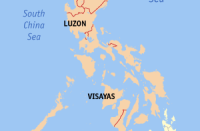Do you have any idea on the smoking status of Filipinos now?
As shown in the latest survey by the Food and Nutrition Research Institute of the Department of Science and Technology (FNRI-DOST), the proportion of current smokers, 20 years old and above decreased from 31.0% in 2008 to 25.4% in 2013.
Current smokers are those who smoked during the survey either on a “daily” or on a regular/occasional basis; those who do not smoke daily but who smoke at least weekly or those who smoke less often than weekly (WHO 2008).
Looking at the prevalence by age groups, smoking greatly occurs among the 40-49 years old while the poorest quintiles still have the highest rates of smoking. We all know that smoking is addictive. Once you start smoking, it is hard to give up.
The best rule is never to start smoking. But if the habit has been formed, here are simple tips on how to stop smoking:
- Decide to stop smoking and set the time when you’ll quit smoking.
- Throw away all cigarettes, cigars, matches, lighters and ashtrays.
- Watch out for any untoward signs (withdrawal syndrome), such as nausea, cold-clammy perspiration, trembling and restlessness in a week or two.
- Drink plenty of water.
- Get involved in different physical activities to divert craving for cigarettes.
- Use the money saved from not buying cigarettes to get a special gift for yourself.
- Avoid going to places where cigarettes can be bought and where people smoke.
- Avoid lightning even just one cigarette. This will lead to another and still another until the habit is back, without you knowing it.
- Carefully observe your diet to avoid gaining weight.
- Tell friends and relatives that you stopped smoking cigarette to get their support.
As one of the government efforts to remind the public, the FNRI-DOST included smoking in the 2012 Nutritional Guidelines for Filipinos (NGF) 10th message: “be physically active, make healthy food choices, manage stress, avoid alcoholic beverages and do not smoke to help prevent lifestyle-related non-communicable diseases”.
For more information on food and nutrition, write or call: Dr. Mario V. Capanzana, Director, Food and Nutrition Research Institute, Department of Science and Technology, General Santos Avenue, Bicutan, Taguig City; Telephone / Fax Nos: (02) 837-2934 or (02) 837-3164; Direct Line 839-1839; DOST Trunk Line:837-2071 to 82 local 2296 or 2284; e-mail: [email protected] or [email protected]; FNRI-DOST website: http://www.fnri.dost.gov.ph. Like our Facebook page at facebook.com/FNRI.DOST or follow our twitter account at twitter.com/FNRI_DOST. (Ma. Idelia G. Glorioso, S&T Media Services/PIA-Caraga)







